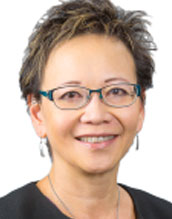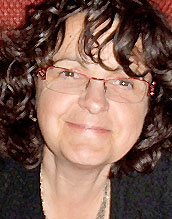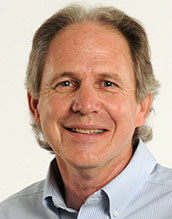CAPLA presents
A Spring Webinar Series
May 12, 19, and 26, 2021
Join CAPLA for these three Spring webinars:
- Wednesday, May 12, 2021, 12:00pm EDT
RPL 101: An Introduction to RPL in Canada
Read more - Wednesday, May 19, 2021, 12:00pm EDT
RPL Assessment Practice: Methods, Tools, and Processes
Read more - Wednesday, May 26, 2021, 12:00pm EDT
Will the Micro-credential Craze Reset the Recognition Agenda in Canada?
Read more
Wednesday, May 12, 2021, 12:00pm-1:30pm EDT
RPL 101: An Introduction to RPL in Canada
Lauren Waples, Manager Academic Quality & RPL, Centre for Learning and Program Excellence, Red River College of Applied Arts, Science and Technology;
Doreen Leong, RPh, Director of Registration and Licensure, College of Pharmacists of British Columbia
Recognition of prior learning (RPL) has a long history in Canada, and the Canadian Association for Prior Learning Assessment (CAPLA) has been its national voice since its inception in 1994.
RPL practitioner Lauren Waples will facilitate this introductory session that will include topics such as:
- The Canadian Association for Prior Learning Assessment (CAPLA)
- What is prior learning?
- Where does learning occur and how is it recognized?
- Who is involved in RPL?
- Assessing prior learning
- CAPLA’s Guiding Principles for Quality RPL Practice in Canada
- Steps in the RPL process
- Implementing RPL
Lauren will share some of her experiences within the RPL environment in Manitoba and from her experience at Red River College.
Providing an example of a sector using RPL procedures and tools, we are pleased to welcome Doreen Leong, Director of Registration and Licensure for the College of Pharmacists of British Columbia, to report on how the occupational body uses RPL to improve access and maintain standards of practice within the profession.
Participants will be encouraged to share experiences and ask questions.

Lauren Waples is the Manager, Academic Quality & RPL at Red River College where she manages the College’s RPL Services and provides guidance and RPL resource assistance to RRC faculty and staff. Lauren facilitates RPL training and professional development and guides the development of resource materials and evaluation tools. Lauren chairs the College’s RPL Committee comprised of RPL specialists from College academic and service areas.
Lauren has experience working as Red River College’s RPL Advisor and is a graduate of RRC’s RPL Practitioner Certificate program. She has served on CAPLA’s Board of Directors since 2019.

Doreen Leong is the Director of Registration, Licensure. She brings over 20 years of pharmacy experience from hospital, community and administrative practice. She has worked in every department within the College and has expertise in the area of assessment, certification and the development of standards, competencies and policy.
Wednesday, May 19, 2021, 12:00pm-1:30pm EDT
RPL Assessment Practice: Methods, Tools, and Processes
Laura Malbogat, M.Ed Masters in Counselling; and
Mark Gallupe
The Art of Making Assessments – Meaningful is Possible – Laura Malbogat
Holistic assessments are not only possible but essential in today’s education and the RPL process. Providing students with varied and meaningful evaluations can have a direct impact on student engagement and learning outcomes. We often talk about ‘active learning’ but not enough about making assessments, both formative and summative, engaging, meaningful, relevant and aligned to what students need to know, understand and demonstrate their mastery of. Holistic assessments means ‘pausing’ to consider the different ways students can demonstrate their understanding and prior knowledge/skills. In this presentation, we will explore different formative and summative assessment possibilities beyond the traditional tests and written assignments that can be used in the RPL process, including:
- Case studies & scenarios
- Authentic projects
- Role-play & simulation
- Problem Solving
- Video assessment & analysis
Portfolio-Assisted RPL Assessment – Mark Gallupe
The use of a portfolio assisted approach to RPL, whether in secondary/post-secondary education or in industry, has tremendous benefits for learners, faculty, workers and employers. We’ll begin by reviewing the basics such as what is a portfolio, components of a portfolio, types of documentation (evidence) and lastly how to prepare the portfolio for its intended use (e.g. for college credit or for hiring or promotion with a company). Next we’ll discuss assessing a portfolio, the role of assessor and how an assessment is conducted. To ensure quality practice four key questions will be considered.

Laura Malbogat holds a Master’s in Education degree from McGill University. She has more than thirty years of experience working in the education sector. For the last ten years, Laura has been involved in the RAC (RPL) Special Care Counselling program at Champlain College as the Pedagogical Counsellor. Laura has worked as a teacher, counselor, coach and consultant.
Having worked and lived abroad for ten years in Africa, Asia, Middle East and consulted in over 20 countries, Laura has a deep understanding for the need to provide meaningful education for all students. She has presented in many conferences as both a keynote speaker and workshop leader, (CiCan, CAIS, CAPLA, and AISA, the Association for International Schools in Africa).
Laura has worked on multiple consulting projects with a particular focus on active learning and holistic assessments. For the last three years, she has been involved in several RPL projects with CiCan, in Kenya, providing training for teachers and administrators.

Mark Gallupe is a retired community college professor. Prior to his retirement in June 2020 he worked at Loyalist College in Belleville, Ontario. Mark taught in the Social Service Worker program and coordinated and taught in the Facilitator of Adult Learning program. He has worked closely for over thirty years with his longtime friends and colleagues Paul Zakos and Rose Marie Reid. Together they have engaged in many PLAR/RPL activities such as planning and delivering conferences, working on projects, developing training materials and so on.
Mark has presented at several CAPLA conferences over the years with a focus on advising and assessing. He continues to be involved in RPL as an assessor with Athabasca University and with Loyalist College.
Wednesday, May 26, 2021, 12:00pm-1:30pm EDT
Will the Micro-credential Craze Reset the Recognition Agenda in Canada?
Mike Luff, National Representative, Canadian Labour Congress;
Dan Piedra, Assistant Director, Centre for Continuing Education, McMaster University; and
Dr. Nan L. Travers, Director of the Center for Leadership in Credentialing Learning (CL2) at SUNY Empire State College
As in many sectors, the pandemic has laid bare some fundamental problems around the recognition of prior learning in Canada. In 2002, the Government of Canada raised a red flag to address the learning recognition gaps in the country and warned us about the problem.
“Insufficient prior learning assessment and recognition capacity is another important gap in our learning infrastructure.” (Pg. 41 Knowledge Matters: Skills and Learning for Canadians. Canada’s Innovation Strategy – ESDC: Canada SP-482-02-02).
Likewise, the economic cost of the non-recognition problem was also flagged by The Conference Board of Canada in 2001 which estimated the economic benefit of recognizing prior learning would be an additional $4.1 – $5.9 in income to Canadians annually (Brain Gain, 2001, updated in 2015).
FAST FORWARD TO 2021!
The background information below suggests that RPL and micro-credentials may be gaining momentum simultaneously. What are the possible implications for future enhancements to the learning recognition culture in Canada?
Read more

Mike Luff is a National Representative in the Political Action and Campaigns Department at the Canadian Labour Congress (CLC).
The CLC is the national voice of the labour movement in Canada, representing 3.3 million workers.
Mike has over 25 years’ experience working with progressive organizations in Canada and internationally on a range of public policy issues. These issues include: skills development, workplace training, apprenticeship, post-secondary education, adult literacy, labour mobility, health care and public service delivery.

Dan Piedra currently serves as an assistant director at McMaster University Continuing Education in Hamilton, Ontario, Canada. He oversees online course design and development including all certificate and diploma programs offered within the centre. Previously, he has served in similar positions at Sheridan College in Oakville, Ontario (2011-14) and as Director of Conestoga College’s Continuing Education department in Kitchener, Ontario (2002-11). He has also served as an instructor of online and in-person programs at several institutions of higher education including Brock University in St. Catharines, Ontario. He completed his Bachelor of Education and Master of Science at Brigham Young University in Provo, Utah and is currently working on a PhD in Education from Brock University. His research interests lie in exploring quality of online learning in areas of instructor training, instructional design, humanization of online courses, the use of non-traditional assessments, alternate digital credentials, and student empowerment.
Read more

Nan Travers, Ph.D., director, Center for Leadership in Credentialing Learning, SUNY Empire State College, focuses on research, policies and practices of the recognition, validation and credentialing of learning. Dr. Travers led the Credential As You Go initiative, which developed the Incremental Credentialing Framework. She also is the PI for the All Learning Counts project, which is focused on evaluating competency-based workplace learning for college credit and providing micro-credentials that include the training and lead to degrees. She previously led the development of the Global Learning Qualifications Framework to assess college-level learning, serves on the board for the Prior Learning International Research Consortium, is a lead contributor to the Learning Recognition Collaborative in conjunction with the National Institute for Learning Outcomes Assessment (NILOA), and has served on the core team for the national Connecting Credentials Initiative. Travers serves as founding co-editor for the journal: PLA Inside Out (www.plaio.org). Travers has a Ph.D. in Adult Learning from the University of Connecticut and a M.A. in Curriculum Development from Johnson State College in New Jersey.

